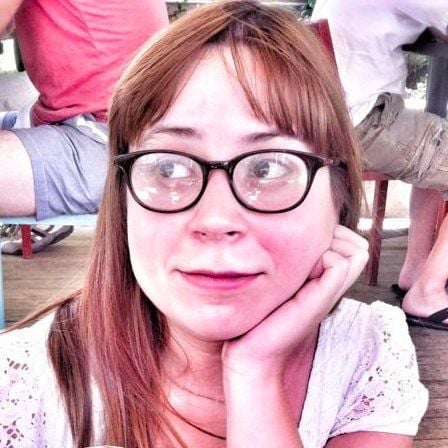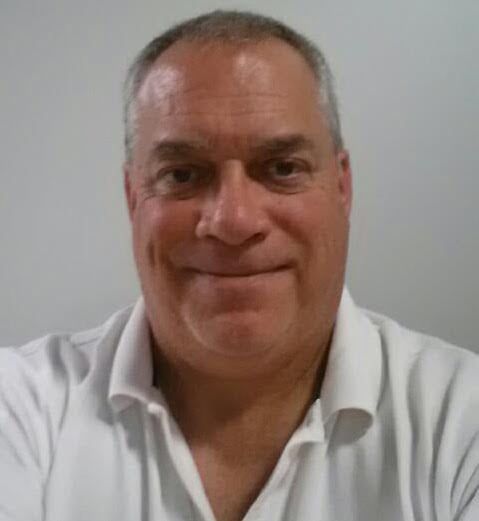
There’s absolutely something magical about the world of coding. For many developers, that combination of wizardry and the desire to create and build something is what led to their careers today.
We caught up with six Austin coding instructors to learn more about why and how they got into the field, and what to know if you want to join them.
 Joel Rojo is a software development instructor for Dev Bootcamp Austin. The Harvard computer science grad grew up playing video games, reading science fiction and fantasy and building things — a natural move into a field dedicated to creating. Before transitioning to his instructor role at Dev Bootcamp, Rojo co-founded TicketKarma, served as director of product development at BrightCo, and worked as a labs product developer for Indeed.
Joel Rojo is a software development instructor for Dev Bootcamp Austin. The Harvard computer science grad grew up playing video games, reading science fiction and fantasy and building things — a natural move into a field dedicated to creating. Before transitioning to his instructor role at Dev Bootcamp, Rojo co-founded TicketKarma, served as director of product development at BrightCo, and worked as a labs product developer for Indeed.
Why did you get into coding?
We're in the middle of a technological renaissance and coding is the new medium of our time. Today, learning to code is like learning to paint or sculpt during the Italian Renaissance. That's my poetic answer. But really, being a huge gamer and tinkerer growing up (Legos!), I just wanted to make video games and build things. I also watched and read a lot of science fiction and fantasy growing up, which shaped my personal interests and aspirations. Don't just be a part of the future, help build it!
Once you decided you wanted to start coding, how did you turn it into a career?
I always say that coding was a hobby, and I was lucky enough to turn it into a career. I never saw coding as a career path to wealth. I just had a strong interest in learning how things work and how things are created. I always take things apart and put them back together. And that curiosity coincided with the rise in tech and coding. I found something I loved that also could provide a means to live, and I think that's what we all aspire to at some level.
Based on your experience, what advice would you give to an aspiring software developer?
Make sure you really care about coding before you dive deep. It's easy to get excited early in your journey, but remember that while there are plenty of highs in software development, there are also a ton of lows and trudging through the mud. Make you sure you enjoy being in the mud. And once you're convicted in your path, then give it all you got. Read, code, and expose yourself to as many projects and as many developers as possible. It will all inform your future.
 Cecy Correa leads the co-chapter of Girl Develop It, a nonprofit with a local chapter dedicated to helping women pursue a career in web and software development. When she attended film school YouTube was just on the cusp of blowing up, so for her to post her films online she self-taught herself HTML and CSS. Upon realizing she enjoyed building websites for films rather than creating films, she pivoted into the developer space. Today, Correa is an engineer at Return Path.
Cecy Correa leads the co-chapter of Girl Develop It, a nonprofit with a local chapter dedicated to helping women pursue a career in web and software development. When she attended film school YouTube was just on the cusp of blowing up, so for her to post her films online she self-taught herself HTML and CSS. Upon realizing she enjoyed building websites for films rather than creating films, she pivoted into the developer space. Today, Correa is an engineer at Return Path.
Once you decided you wanted to start coding, how did you turn it into a career?
I went about it in a very roundabout way. My first job in tech was at a gaming company doing everything from QA to graphic design, social media, and content writing. I always wanted to be a backend engineer, but I honestly didn't think I had the brains for it. Yes, what they say about women often feeling they can't do STEM or engineering is very real for some of us, especially if you come from a traditionalist background. I finally decided to take the plunge. I saved money, started taking part-time classes in Javascript via Thinkful to get my feet wet. With enough money in savings, I went to The Iron Yard's Rails Engineering program to learn backend (I specifically wanted to work in Ruby). After graduating from The Iron Yard, I secured a paid internship at ReturnPath, where I was eventually hired as a full-time engineer. It took a long time to make the transition, but I am glad I did!
Based on your experience, what advice would you give to an aspiring software developer?
There are many paths in tech! Remain open to all of them! I would highly recommend anyone interested in a career in tech watch Brandon Hays' amazing talk on the many career paths you can take, presented at RailsConf 2016.
DO — keep your Github up-to-date with recent code samples, commit code every day (employers do look at your commit track record), get a website or blog where potential employers can get to know you. The market for junior developers is a bit saturated right now and the best way to set yourself apart is to have a nice website that showcases your work or even your thought process (if you cannot provide code samples).
DON'T — drop off resumes in person. We work in tech, we don't want paper resumes lying around. It can also come across a little desperate. Instead, ask for informational interviews if you are interested in a specific place that is not actively hiring, but don't just drop off resumes unsolicited.
Any recommendations for new coders looking to get started?
I would highly recommend anyone attend Refresh Austin, which is one of the oldest meetups in town. It is a very friendly to newcomers meetup and they have a great Slack community as well.
As chapter leader of Girl Develop It here in Austin, I'd be remiss if I didn't mention that we have been providing affordable, accessible classes to Austin women for half a decade. While our classes are geared towards women, our events are open to all genders and identities.
 Ashley Lowry, also an instructor at Girl Develop It, is a software engineer at Spanning Cloud Apps, working primarily on front-end development. When her dad challenged her to build a website, her interest in coding took flight.
Ashley Lowry, also an instructor at Girl Develop It, is a software engineer at Spanning Cloud Apps, working primarily on front-end development. When her dad challenged her to build a website, her interest in coding took flight.
Why did you get into coding?
After I spent an entire summer surfing the internet, my father decided I needed to be more productive. He came home one day and challenged me to build him a website. I found basic HTML & CSS to be fun but wanted to do something more challenging so I picked up my first book on programming.
Once you decided you wanted to start coding, how did you turn it into a career?
I knew I wanted to code for a living since I built that first site for my dad. I took computer science in high school and went straight into college declaring a CS major.
Based on your experience, what advice would you give to an aspiring software developer?
While dev guides, books, and tutorials are wonderful for learning what is available to you (and you should read them), you really need to build a project of your own to fully understand something. Also, there's a difference between mastering syntax and knowing how to build software. Practice and experience can really help you with the latter.
How would you describe Austin's coding community?
Vibrant, friendly, open and growing. If you take a look at the number of tech meetups in town, you'll see there's no shortage of topics to discuss. I've always found them very welcoming as the members of those communities are passionate about their subject and interested in having their groups be a success.
Our city's experiencing a growing number of new developers with the boom of coding boot camps in recent years. I believe the boot camps are also increasing the diversity of developers in our town with both the composition of their classes and their support of organizations like Girl Develop It. All-in-all it's a wonderful community to be a part of.

In addition to leading instruction at The Iron Yard’s Java coding boot camp, Gil Pratte also works for Mutual Mobile as a server architect. He’s been a developer for 25 years and has previously worked at Capital Cash, Edustructures and IBM.
Why did you get into coding?
It was the path of least resistance after getting a B.S. in Mathematics. Although I was good at math, I did not love it. Once I was exposed to programming I fell in love. I found that most days of my 25 years as a professional developer were enjoyable. It's nice to get paid to do something you like.
Once you decided you wanted to start coding, how did you turn it into a career?
My career started as a co-op at IBM in Boca Raton Florida. My co-op manager liked the work I did and offered me a permanent position as a junior developer.
Based on your experience, what advice would you give to an aspiring software developer?
Two things. First is that to being a (good) developer requires a lifetime of learning. Second is that once you get your first job then subsequent jobs are normally easy to find.
How would you describe Austin's coding community?
Very active. There is a plethora of meetups. For example, the Austin Java User Group is meeting tonight. Closer to home, I provide free crash courses at The Iron Yard, and I am overseeing a study group for the first Java certification.
 Britney Jo Ludkowski is a web development instructor at General Assembly and a growth hacker and front end developer for a startup. Prior to her dev days, she studied creative advertising and business marketing in undergrad, with hopes of being a creative director at an agency one day. She accepted the first marketing job offered to her following graduation at an IT company. Missing the creative work, Ludkowski picked up freelance graphic designing which grew into a full-time business after a few short months.
Britney Jo Ludkowski is a web development instructor at General Assembly and a growth hacker and front end developer for a startup. Prior to her dev days, she studied creative advertising and business marketing in undergrad, with hopes of being a creative director at an agency one day. She accepted the first marketing job offered to her following graduation at an IT company. Missing the creative work, Ludkowski picked up freelance graphic designing which grew into a full-time business after a few short months.
Why did you get into coding?
After designing a few sites, I realized very quickly that I wanted to build the sites I was designing and not be limited to what a CMS could offer. Insert General Assembly! I moved to London (GA Austin didn't exist yet) and learned to code in 12 weeks.
While it doesn't seem like a very direct path to coding, without my experiences in design and business marketing I wouldn't have been able to understand how creativity, problem-solving, and communication are truly key parts of coding, and now I get to combine all of those on a regular basis.
How did you turn it into a career?
I wasn't a computer science nerd or a "teach myself at night" type of coder. Once I had made up my mind that I wanted to build websites, I knew I wanted some type of immersed course so I could learn quickly and feel job-ready. For me, General Assembly fit the bill and was my way of getting that immersion, learning from practitioners, and receiving job searching advice.
After completion of the course, I moved back to Austin and started job searching and networking like crazy. My first job as a junior developer was at an ad agency so my "abnormal for a developer" background really worked to my advantage!
What advice would you give to an aspiring software developer?
Use your previous life experiences to your advantage! Some of the best coders and problem solvers I've met aren't computer science graduates. They are musicians and finance professionals and even teachers. They've experienced problems or inefficiencies in their current careers and have the motivation to build a solution.
There isn't a right way to become a software developer. You have to work hard, want the challenge, and be nice. I'm serious about the "be nice" part, too. Networking is an amazingly powerful tool and you never know when you'll bump into the right connection.
 Eric Scott is an instructor at the Coding Boot Camp at UT Austin and a full stack developer at Spiceworks. He originally taught himself how to program before going to college for computer science at Texas A&M.
Eric Scott is an instructor at the Coding Boot Camp at UT Austin and a full stack developer at Spiceworks. He originally taught himself how to program before going to college for computer science at Texas A&M.
Why did you get into coding?
I got into coding because I wanted to make games and feel like a wizard.
Once you decided you wanted to start coding, how did you turn it into a career?
I turned it into a career by learning how to program myself and then getting a Bachelor's in computer science.
What advice would you give to an aspiring software developer?
Based on my experience, the best way to learn software is to write software, find a project, finish it, and have to live with the consequences. Make something that people would use.
How would you describe Austin's coding community?
Austin's coding community is really supportive and excited about what you're working on and willing to help each other.
Images provided by participants, social media and Shutterstock. Some responses have been edited for clarity and length.
Let us know what you want to read about by leaving us a tip or tweeting us@BuiltInAustin





